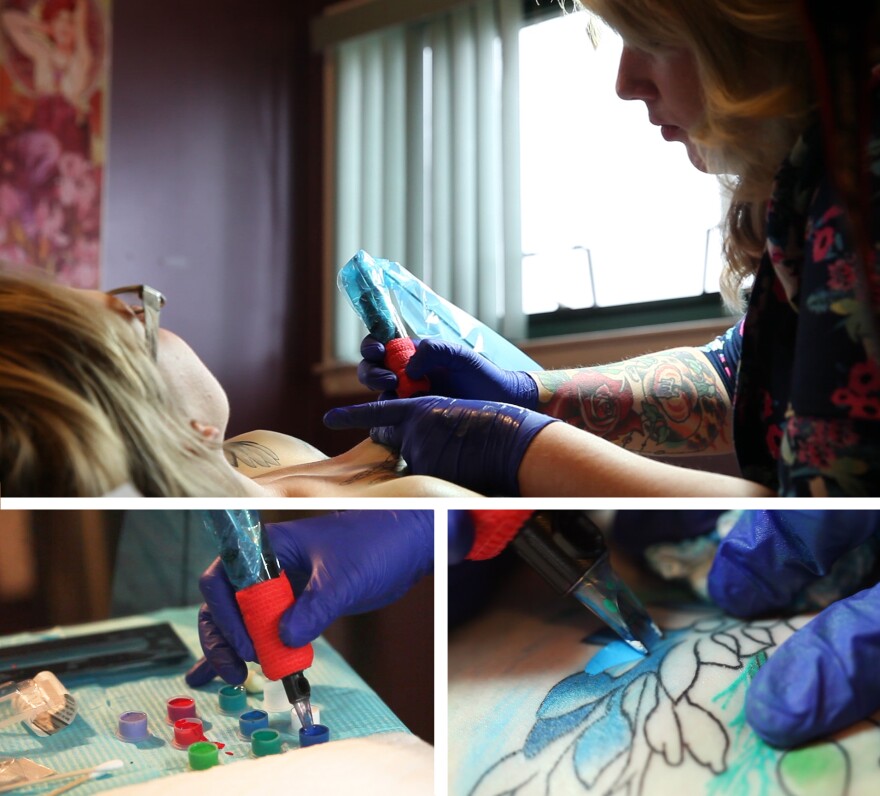Within weeks of being diagnosed with breast cancer at 29 years old, Nicole O'Hara of Phoenix, Md., underwent a double mastectomy. She had breast reconstruction during the same operation; then it was on to chemotherapy.
The ordeal left O'Hara with "big, ugly, red inflamed scars and stitches and drains," she says.
"It [was] a battlefield."

The scars spread across her chest where the incisions were made and the chemo port was placed. As she healed at home, those scars remained.
"To be reminded of those every time you look in the mirror can be hard," she says. "You're trying to move past that point in your life."
O'Hara's plastic surgeon laid out the reconstruction options: She could have nipples built from her own skin or areola and nipple shading tattooed to look like the real thing. But instead of re-creating what she had lost, she decided to do something more artistic.
She worked with a friend to design a tattoo and, four years after the mastectomy surgery, took it to Lisa Doll, the owner of Rose Red Tattoo in Ellicott City, Md. Doll specializes in tattooing over scar tissue that is often discolored, uneven and thinner than normal skin, making it difficult to hold pigmentation. The skin typically needs at least a year to heal before it's ready. And even then, scarring may be too extensive.

But a tattoo can be an empowering option for people who have had a mastectomy, Doll says.
"Cancer comes through and does things that they're not happy with," she says. "Getting a tattoo over their mastectomy scars puts them in control of their body image."

Doll's first mastectomy tattoo client came to her through word of mouth. It was an emotional experience and motivated her to want to do more. Since then, she has been active in the breast cancer community, booking clients every month.
"People see it much more as an adornment to their body. It doesn't have that taboo undertone like it used to," she says. "They bring their whole family to see the results."
The art requests range from floral and ornamental to the more risque and lacy, but Doll says that the designs almost always have some personal meaning.
Like the piece O'Hara has tattooed across her chest: a spray of apple blossoms, bluebells, heather, garlic — all symbols from her garden. A black and blue magpie sits off to the right with his wings outstretched.
"I'm a gardener," she says, "Flowers, birds — it's where I feel most alive and comfortable."
She specifically asked for tall lavender lupine flowers to extend up her shoulder in a bra-strap shape so she could tell her story to anyone who happened to see it.
"It's a reminder that yes, I got through it. I made it."
Copyright 2020 NPR. To see more, visit https://www.npr.org.


